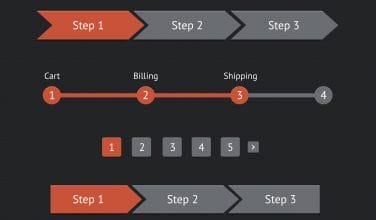Definition of Long Tail Keywords
This article was published on May 17, 2011
Categorized in: Glossary
A long-tail keyword is a keyword that contains at least 3 words. Long-tail keywords are used by searchers who are searching for something specific. An example of a long-tail keyword: “Leather jacket black size medium.” Long-tail keywords might be less searched, but because the user knows exactly what they are looking for, the conversion rate is usually higher.
searchers who are searching for something specific. An example of a long-tail keyword: “Leather jacket black size medium.” Long-tail keywords might be less searched, but because the user knows exactly what they are looking for, the conversion rate is usually higher.
What makes long-tail keywords important? As mentioned, when a user does a search with a long-tail keyword, they know exactly what they are looking for. Long-tail keywords are equally important to website creators. If you sell leather jackets, but all of your keyword are short-tail (“black jacket,” “leather jacket”), you might receive a lot of traffic to your website, but not as much conversion. If you want to target users who know what they want, you need to include keywords that are more detailed. Should you only use long-tail keywords? Definitely not. A combination of both types of keywords will help improve chances of more hits and conversion.
How can you choose the best long-tail keywords? Keyword research plays an important role in choosing the best long-tail keywords for your website and business. Keywords are the foundation of search engine optimization (SEO). In order to get hits, people need to be searching for what you are offering. Keyword research is all about understanding the language your target visitors use. The process of keyword research involves analyzing, comparing, and prioritizing the best long-tail keywords to drive traffic to your website.
To get more ideas for long-tail keywords, begin typing your keywords into Google or another search engine and see what comes up. This will give you an idea of what people are searching for.
Will long-tail keywords cost more in advertising? Actually, long-tail keywords are valuable for advertisers. When you bid on long-tail keywords, the cost per click is lower. Why? Because there is less competition. Long-tail keywords are valuable for your business as well of course because you will likely rank in organic Google searches. Everybody wins.
By using long-tail keyword variations in your marketing campaigns, you will earn better search rankings, more and better traffic, and lower costs per click.
How will using long-tail keywords benefit SEO? Driving more traffic to your website requires an intentional search engine optimization strategy. Long-tail keywords are one of your best solutions for improving SEO. Using long-tail keywords will help you increase your content visibility, help your new pages rank quickly, help you personalize your content, and they cost less to bid on.
Using long-tail keywords will also help you rank for short-tail keywords because they already tend to include the short keywords you might hope to rank for. By using long-tail keywords, you are getting two jobs done at the same time, which will earn you higher ranking, organic traffic.
The importance of long-tail keywords should not be underestimated. They will help you attract more high-quality traffic to your website and lead to more conversions.
Definition of Long Tail Keywords Sources:
LIKE AND SHARE THIS ARTICLE:
About the Author: Brick Marketing President, Nick Stamoulis
 Nick Stamoulis is President of Brick Marketing and has over 25 of years digital marketing experience. He specializes in solving complex digital marketing challenges through SEO, content marketing, social media, PPC, email marketing, SEO for AI (GEO) and conversion optimization.
Nick Stamoulis is President of Brick Marketing and has over 25 of years digital marketing experience. He specializes in solving complex digital marketing challenges through SEO, content marketing, social media, PPC, email marketing, SEO for AI (GEO) and conversion optimization.




